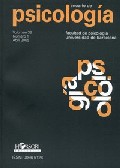Competition and social and personality development: Some consequences of taking Darwin seriously
Resum
Careful consideration of the evolutionary implications of competition and cooperation has significant repercussions for social dominance in humans across the life span. For example, two broad and phenomenologically distinct classes of resource control strategy appear to emerge in early childhood and persist through adulthood; namely, prosocial and coercive. Though these behavior classes are traditionally considered to be opposites in (non-evolutionary) psychology, they may ultimately function similarly. The present paper summarizes a novel theory of social dominance, exemplifies its utility by sketching an empirical program of research on children and adolescents, and reviews possible implications for traditional views of child behavior. Keywords: social dominance, evolution, aggression, peer relationships, personality.Descàrregues
Publicades
2008-10-30
Número
Secció
Dossier: Evolutionary developmental psychology: Re-searching the roots of development (C. Hernández , D.F. Bjorklund)
Llicència
El/la autor/a que publica en esta revista está de acuerdo con los términos siguientes:
El/la autor/a cede en exclusiva todos los derechos de propiedad intelectual al/la editor/a para todo el mundo y toda la duración de los derechos de propiedad intelectual vigentes aplicables.
El/la autor/a puede difundir una copia de sus artículos respetando la política de acceso libre de la revista.


